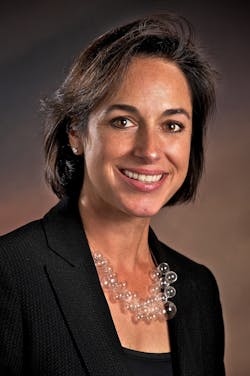The latest meaningful use attestation numbers are proof that Stage 2 is losing momentum and will continue to do so unless changes are made, says Russell P. Branzell, President and CEO of the College of Healthcare Information Management Executives (CHIME).
The Centers for Medicare and Medicaid Services (CMS) revealed this week that less than 35 percent of eligible hospitals (EHs) and less than four percent of eligible professionals (EPs) have attested to Stage 2 of meaningful use. Most of the organizations and providers that attested to meaningful use in 2014 were attesting to Stage 1. The remaining hospitals and providers that haven’t attested to Stage 2 but are on that timeline, must do so by 2015 or face penalties. The full-year reporting requirement will ensure that any problems EHs and EPs had attesting in 2014 will be amplified in 2015, says Branzell.
“The overall support for the program is waning, the cost benefit is not there,” says Branzell in an exclusive interview with Healthcare Informatics. “With all of the changes that have gone down at the Office of the National Coordinator for Health IT (ONC), there are still good people left. They have to not only right the positive momentum for meaningful use, but accelerate it.”
Branzell is referring to the turnover at ONC, with several high-profile officials leaving the agency for the private sector as well as the uncertainty surrounding Karen DeSalvo, M.D., the National Coordinator for Health IT, who was pegged for another position within the Department of Health and Human Services (HHS). In order for meaningful use to succeed, Branzell says there needs to be clear leadership and guidance from ONC.
Because of the full-year reporting requirement, Branzell says it’s possible that attestation numbers could actually drop in 2015. He says lots of providers, especially EPs, might see too much of an administrative burden for the full-year reporting requirement and decide to drop out.
Last month, CMS extended the 2014 reporting attestation deadline from November to December. Branzell says through moves like this, CMS is acknowledging that there are challenges with meaningful use attestation and the program in general. However, he still doesn’t think the agency grasps the reality of the environment for EPs and EHs and the difficulties they are facing.
Branzell also provided an update on the Flexibility in Health IT Reporting Act, or Flex-IT Act. CHIME and others tried to get it included in the upcoming Omnibus spending bill but were unsuccessful in doing so. The legislation, introduced by Representatives Renee Ellmers (R-NC) and Jim Matheson (D-UT), would shorten the Stage 2 reporting period from a full year to 90 days.
CHIME will take its cause up with the new Congress in early 2015, says Branzell. With the support of more than 20 congressmen and women, he says they will continue to recruit potential Senatorial advocates through education.
If the legislation isn’t enacted, more could drop out and if that’s the case, Branzell doesn’t understand how Stage 3 of meaningful use would even be in the conversation.. “If the point is to drive quality metrics and enough data to get us to Stage 3 but the vast majority of [providers] aren’t participating [in the program anymore], then we’ve lost the true value of doing this,” he says.


